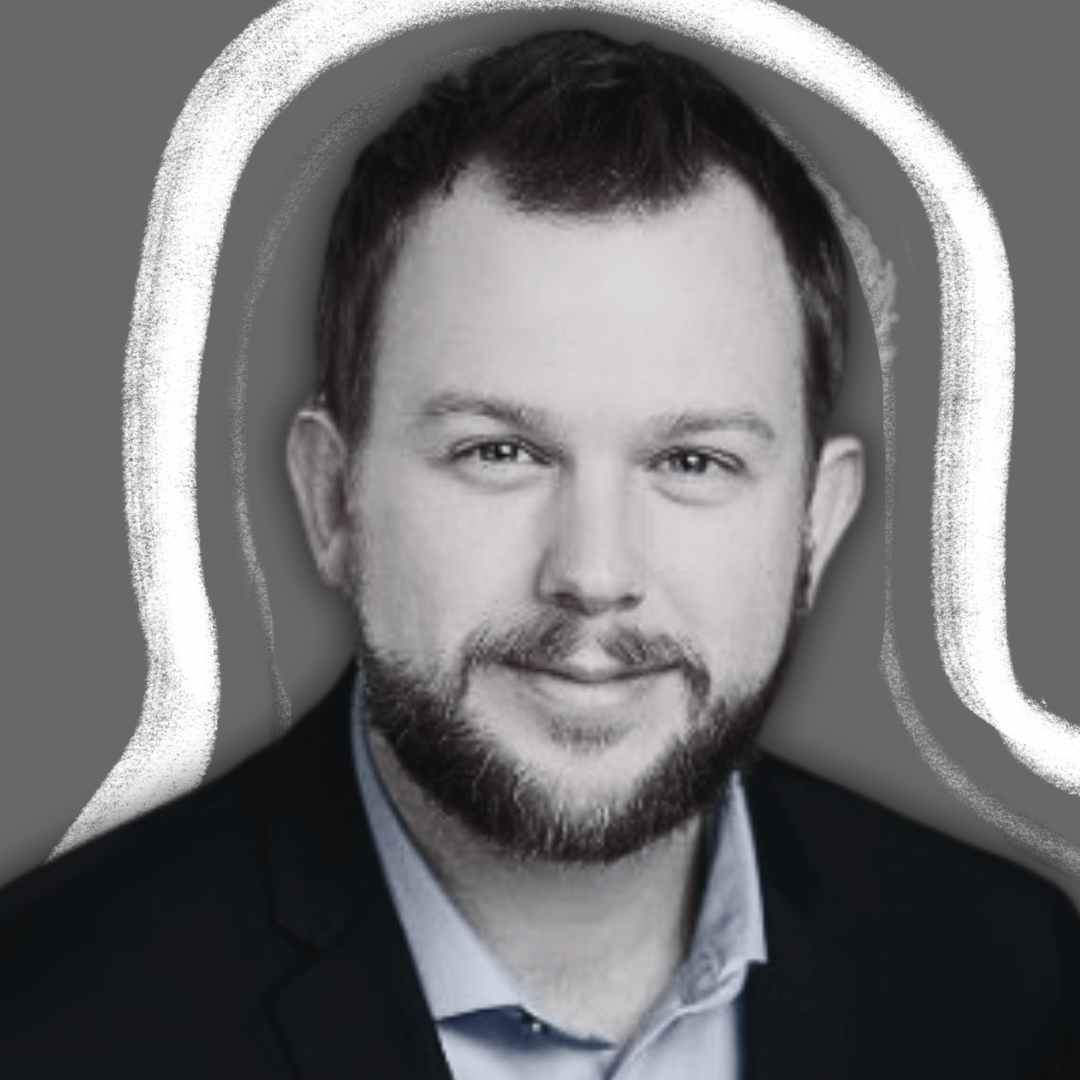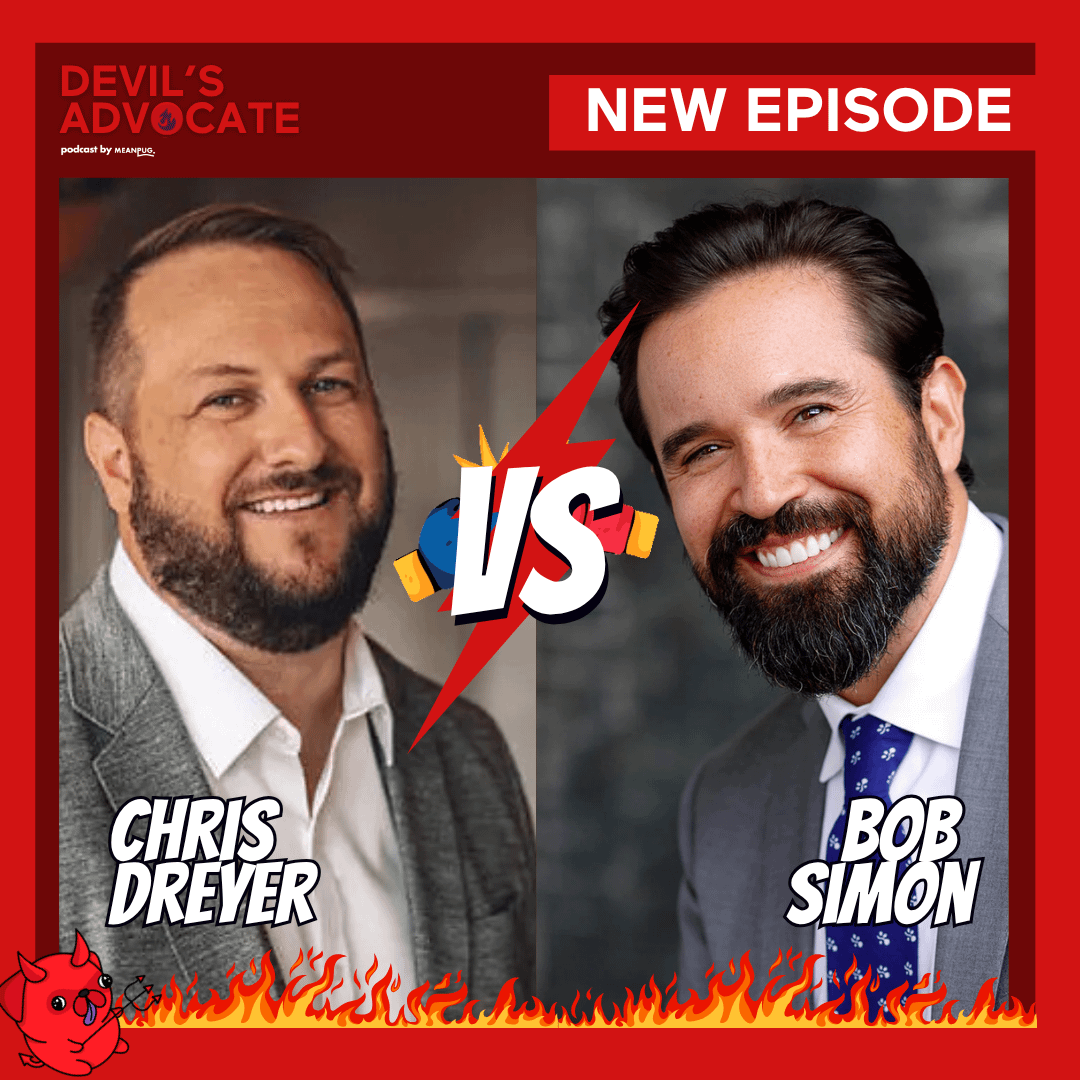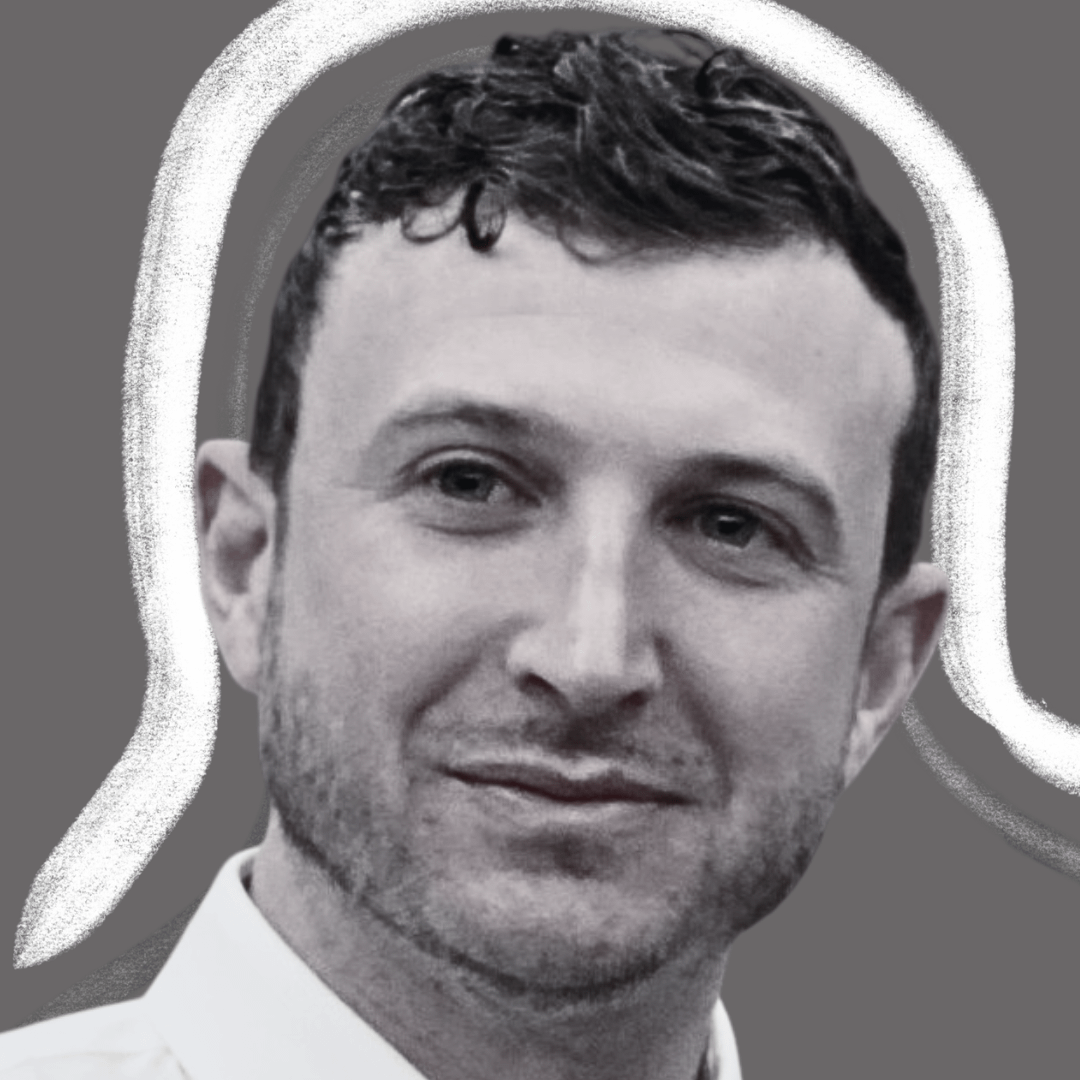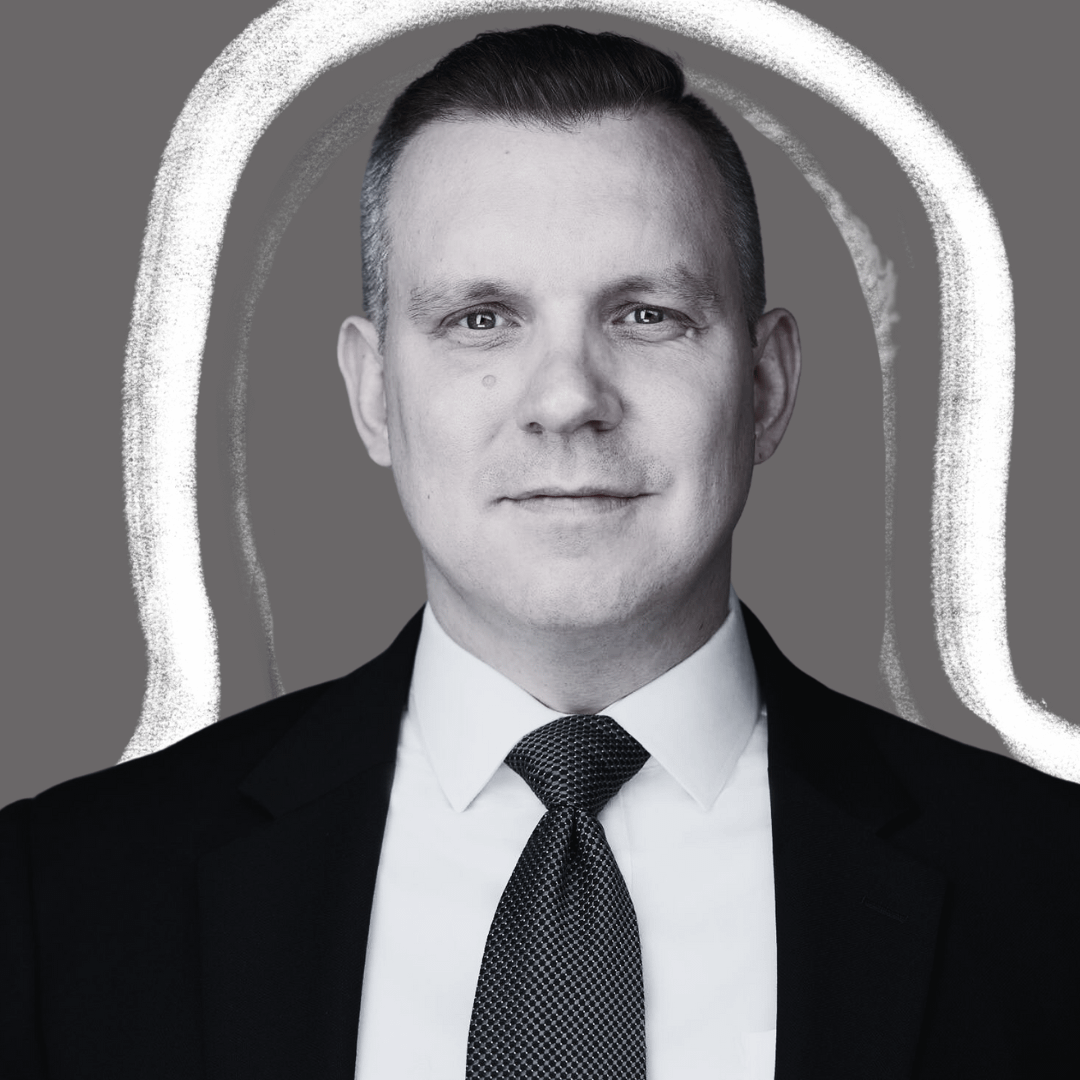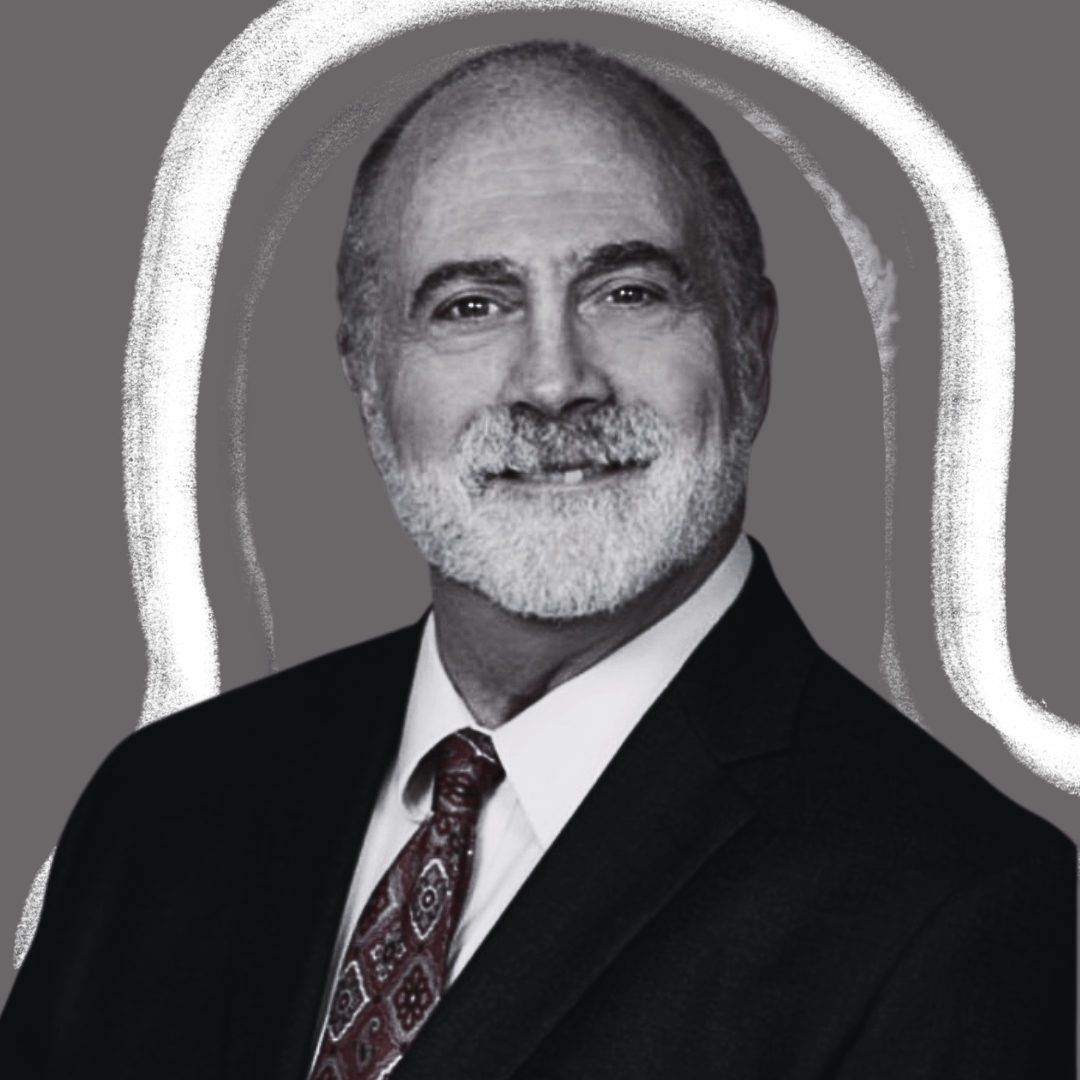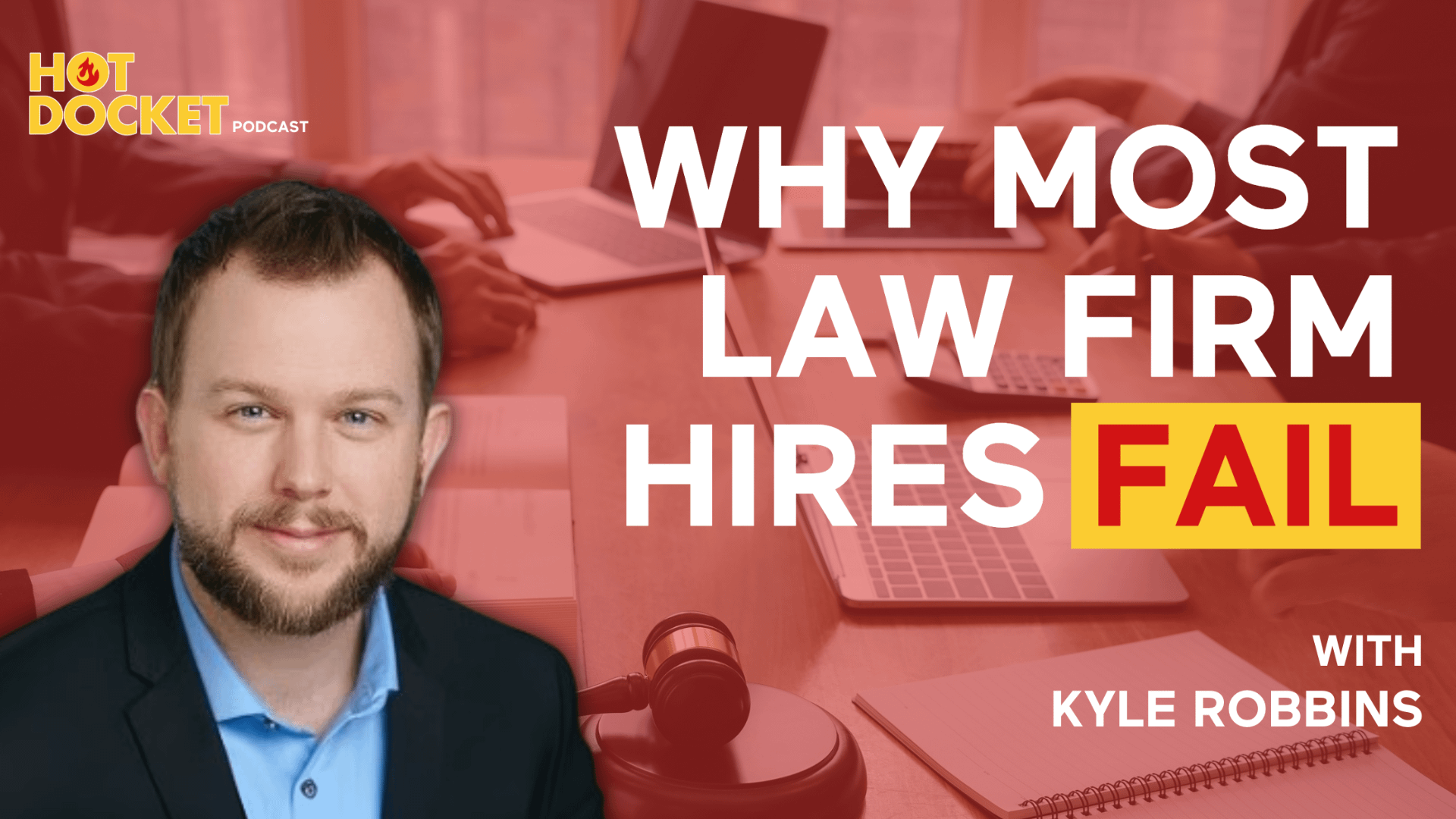
Episode Overview
Tune in to learn:
- From Farm to Firm Owner – Kyle’s unconventional journey from Oklahoma farm life to building a fast-growing estate law firm in Texas
- Fix the Hiring Funnel – Why traditional interviews fall short and how Kyle uses the Culture Index to find top talent that sticks
- Personalities Over Resumes – Real stories of team members thriving after shifting roles based on personality and behavioral data
- Automate to Elevate – How tools like Process Street and Clio helped Kyle replace entire departments and free up staff for high-impact work
- Lead Like a CEO – Why stepping away from lawyering was Kyle’s boldest and smartest move as a founder
- Market Smarter, Not Louder – What marketing efforts actually drove growth and how referrals became the engine of his firm
Episode Links
Want to hear more from elite lawyers and industry-leading marketers?
Follow us on Social Media for more
Episode Topics
- Assess “Fit” First – Use culture and personality assessments to hire for alignment, not just qualifications.
- Automate Intentionally – Deploy workflow tools to eliminate repetitive tasks and empower your team.
- Rework Roles, Not People – Redesign jobs around team members’ strengths to boost retention and morale.
- Measure What Matters – Track marketing ROI rigorously! Cut what doesn’t convert and reinvest in what does.
- Let Go to Grow – Delegate legal work to step fully into leadership and scale with purpose.
Episode Transcript
[00:00:00] Kyle Robbins:
Are you the type of personality that you would want to sit in front of a screen and and do technical work all day and not talk to people? Or do you need to just talk to people all day long and you don’t really care for the technical work? Or do you need a little bit of both? It’s not like trying to assess like how smart people are, how skilled people are, anything like that.
[00:00:16] Kyle Robbins:
It’s really just trying to assess what types of work do you like to do, and would you be a long-term successful fitness chair, or are you going to have to be really stretching and flexing. And kind of grinding at something you don’t really like to do.
[00:00:30] Bobby Steinbach:
Welcome to Hot Docket, the show where we talk about winning marketing strategies that have built the most successful All.
[00:00:35] Andrew Nasrinpay:
Join us every two weeks for the latest trends and tactics to grow your law firm. Welcome to the Hot Docket Podcast. Today we’ve got Kyle Robbins from Robbins Estate Law.
[00:00:51] Andrew Nasrinpay:
Uh, we, we’ve got a very interesting episode today, Bobby. And I’m
[00:00:54] Bobby Steinbach:
looking forward to it. The one thing that I’ll say about Kyle before we kick off is I’m gonna be excited to talk about Kyle’s hiring process and some of his secrets when it comes to that because he’s given us some pretty interesting, unique things to chew on.
[00:01:14] Bobby Steinbach:
So we’ll get there when we get there, but. I am excited for that part.
[00:01:19] Andrew Nasrinpay:
Kyle, do you wanna run us through your background, why you became an attorney, and kind of how you started your practice? I.
[00:01:25] Kyle Robbins:
Yeah, absolutely. So, um, uh, I, why I became an attorney. I look, I grew up in like the sticks of Oklahoma from a farming family, so I’m a classic, like there’s no lawyers in my family or anything.
[00:01:37] Kyle Robbins:
I just didn’t wanna work on a farm mostly so. Uh, took, took the, uh, uh, the law school entrance exam, took the business school entrance exam, uh, did pretty good on the law school one, so I thought, well, might as well give that a shot. Um, I was really fortunate to get into a great law school, uh, the University of Texas, and then, um, during school, uh, just really took tons of attorneys to lunch.
[00:02:01] Kyle Robbins:
Um, asked ’em what their life was like and quickly fell in love with estate planning. So, uh, uh, once I got out of, uh, ut I just dove right in immediately and been doing that for about a decade now.
[00:02:12] Bobby Steinbach:
What were the other practices that were like on your radar, if not estate planning? I.
[00:02:17] Kyle Robbins:
Ooh, I, I scoped everything out.
[00:02:20] Kyle Robbins:
I, I clerked for a bankruptcy court, uh, one summer, uh, which was, I’m gonna use the word entertaining. Um, I worked for a oil and gas firm out in West Texas that did tons of oil and gas litigation. And, uh, that’s actually where I kind of discovered the, uh, uh, estate tax issues that they have out there with their wealthy, wealthy clients out in Midland.
[00:02:43] Kyle Robbins:
And then, uh, I also worked for a, um, a group of patent attorneys, believe it or not. So they would, um, try to enforce patents against the tech industry and had done really well, uh, uh, in that space. But, uh, that was one where I, I think I worked for ’em for six months. I looked up and was like, I have not spoken to another human in the last six months, and I don’t think, I don’t think this space is for me.
[00:03:07] Kyle Robbins:
So, um, briefly, you know, those are, those are the, the main ones that I took a look at.
[00:03:13] Bobby Steinbach:
Yeah, you found your niche. So I teased it at the very beginning, like I wanted to say like two minutes ago, which hasn’t been too much, um, pension buildup, but I think it’s worth talking about. You do something on the hiring side that nobody I’ve ever talked to does.
[00:03:32] Bobby Steinbach:
Uh, so I think you’re very unique. I’d love if you could share a little bit more about your unique approach to hiring and share that, share that insight. I.
[00:03:44] Kyle Robbins:
Yeah, absolutely. We’ve, um, uh, hired I think 30 people in the past few years. So, um, that’s been something that I’m passionate about and I’ve really had to get down.
[00:03:55] Kyle Robbins:
Um, in, in, in my space especially it’s, uh, the legal industry is a, a tough industry to hire in. Um, especially because it’s so different, just depending on what you’re doing. I mean, like I just mentioned in patent law, I was, I was sitting in front of a computer screen all day, every day. Whereas if you go to other industries like criminal defense, uh, you’re pretty much talking all day long.
[00:04:14] Kyle Robbins:
Right? And, and, and so, um, for me, I really want to get people that, um, are, are balanced well with the job description, who like doing what? They do, you know, I don’t want someone who is grinding it out in front of a computer screen when they’d rather be talking to clients. So for me, uh, I actually work with a group called Culture Index.
[00:04:36] Kyle Robbins:
Uh, it’s a pretty large, uh, uh, company. It’s been around for over 20 years. They’ve got, uh, tons of different industries. It’s definitely not legal specific, but they essentially have this product where I can put. Um, a culture survey into my job description. So on LinkedIn or Indeed and effectively, uh, in the job description, I say, Hey, if you wanna be considered, you gotta take this five minute culture survey.
[00:05:00] Kyle Robbins:
And, uh, I have my own rep that I work with who kind of helps me dial that in and, and create accurate job descriptions for what they’re actually gonna be doing. And then from that we can effectively. Really figure out, number one, what people would like to do. So, and, and it’s largely, again, it’s culture fit.
[00:05:19] Kyle Robbins:
So like, are you, are you the type of personality that you would wanna sit in front of a screen and, and do technical work all day and not talk to people? Or do you need to just talk to people all day long and you don’t really care for the technical work? Or do you need a little bit of both? And then we can also dial in on a few things of like, do you prefer a lot of different projects versus do you need like.
[00:05:38] Kyle Robbins:
One project for a six hour block that you just wanna work on. So it, it’s really. You know, it’s not, it’s not like trying to assess like how smart people are, how skilled people are, anything like that. It’s really just trying to assess what types of work do you like to do, and would you be a long-term successful fit in this chair, or are you going to have to be really stretching and flexing and kind of grinding at something you don’t really like to do.
[00:06:03] Kyle Robbins:
But for example, um, I had in the early days I hired a attorney, uh, to do probate for us. And, uh, a a year in, he was like, Kyle, I am miserable. Like I have, I have 80 different clients that I’m working with all day, every day I’m juggling all these different things. Driving around to court, um, I, I, I don’t have more than 20 minutes to focus on a particular task.
[00:06:25] Kyle Robbins:
And so I said, great. When we moved him over to estate planning and now he sees maybe two clients a day, three clients a day, and can allocate like two to three hours per project. And he loves it and he’s super successful in it now. Um, so I’ve kind of got lucky in the beginning. Of just moving people after the fact, uh, once we figured out what they like to do and, and where they’d be good at.
[00:06:46] Kyle Robbins:
But this tool has really allowed us to dial in and get it right the first time. So I don’t have to hire a probate attorney and be like, oh, I hope he is a good probate attorney, versus, you know, maybe we’ll have space to move him over to the estate department if, if that doesn’t work out. So, uh, I love it.
[00:07:01] Kyle Robbins:
It, it’s a great funnel to help us just dial in and frankly, it saves a ton of time too. ’cause if, you know, if I have. Uh, 10 candidates and only three of ’em are really a, a viable fit for that role. Then I only gotta interview three people.
[00:07:15] Bobby Steinbach:
And when you, so we talked to this guy, the culture index guy. I don’t remember his name offhand, but Carrie, what was his name?
[00:07:23] Bobby Steinbach:
Carrie is mine. I think that was ours too. Um, and you go through that process, it feels a little bit like you’re getting, uh, like you’re doing like a palm reading or like a Yeah. You’re getting your like horoscope read. Yeah, ’cause it’s both shockingly accurate, but you’re also trying to suss out if there’s some snake oil going on.
[00:07:44] Bobby Steinbach:
So Uhhuh, there’s like a little bit of a give and take, but we walked away from that. Um, super impressed as well. Like, uh, it, he did it. So as part of his sales process, he basically says, you guys fill in this survey, the survey you would give to anybody. And I will tell you kind of what. I glean from your, from your answers, how I can interpret those answers.
[00:08:07] Bobby Steinbach:
And so he tells you things about yourself that really resonate. But like I said, some of those are like, you’re an intelligent person and it’s like, oh, I am intelligent. Thanks. Yeah, that’s, that makes sense.
[00:08:19] Andrew Nasrinpay: Sense.
Yeah. But some of the one, the ones that are more like a double-edged sword. Yeah, those were pretty accurate.
[00:08:26] Andrew Nasrinpay: Like
[00:08:26] Bobby Steinbach:
the social, there were stuff around being sociable and. Like, uh, I think conformity was one of the, um, like high level categories that they judge you by conformity being like how close to spec or how, um, basically anal are you about attention to detail and of what you deliver. And that was a double edged sword.
[00:08:46] Bobby Steinbach:
’cause it was like, you’ll never be happy with anybody you hire, but you’ll also like, deliver high quality work or whatever.
[00:08:53] Andrew Nasrinpay:
Yeah. I, I, I think you will probably gain more. From the ones that lean a little bit more into the double-edged sword area because tho those were shockingly accurate from what I saw.
[00:09:06] Bobby Steinbach:
Yeah. But again, it’s like, it’s the same type of thing as like, uh, speaking to the dead and horoscope reading. How much of this is him reading you and how much of it is the tool itself, uh, providing the answer?
[00:09:18] Kyle Robbins:
Uh, I, I have to tease Carrie. I, I call it, you know, reading our tea leads, right? I, I’m with you. I think there’s a little bit of fru to it.
[00:09:25] Kyle Robbins:
Um, where I’ve kind of tested them in the beginning was we sent it out to all of our current employees that I’ve had for years, and I know, I know their strengths, I know their weaknesses. And then we kind of walked down and it was very eye-opening. You know, I was able to apply it to people that, um, I, I already knew a lot of this stuff on.
[00:09:45] Kyle Robbins:
And I, I can tell you like four out of five times he nailed it. Um, and so where I found that useful too for current employees is that some of them were in a little bit of pain and I didn’t know it. Like, for example, I had a sales guy who, uh, just did not like the details. Like, you know, he wants to talk himself stuff.
[00:10:03] Kyle Robbins:
He didn’t want to take notes for 20 minutes afterwards. And so, um. We were able to look at that, kind of realize that a little bit and say, oh, why don’t we just get him an assistant that helps to tee up the notes after the fact, right? He doesn’t have to sit here and, and take the notes if we have somebody else that can kind of help out and take over that type of stuff.
[00:10:20] Kyle Robbins:
So, um, I, I think not only as a funnel for who we need, but also to optimize the current employees that we do have and make them just. Like their jobs more. Right. Um, so there’s, there’s a lot of different ways that I can apply it, but, uh, but yeah, there’s definitely a little, a, a little bit of, uh, uh, you know, whatever fru, uh, fru sauce sprinkled in there.
[00:10:43] Kyle Robbins:
So take it with a grain of salt.
[00:10:45] Bobby Steinbach:
Yeah. Well, I know that you’re like a, uh, you’re an EOS guy, you’re a process guy. You, you’re obviously trying out these like cutting edge things to improve your pipelines. Can you walk us through some other. You know, applications that you might be applying internally that you’d consider cutting edge, whether it’s on the marketing side, the ops side, hiring side, whatever.
[00:11:06] Kyle Robbins:
Yeah, absolutely. I mean, marketing, um, marketing’s marketing, I think, I think I’m pretty decent at that. I think there’s a lot of folks that aren’t, aren’t so good at that, especially in my space. But the, um, one of my favorite projects that we’ve worked on recently is, um, building out our process, uh, in a software platform called Process Street.
[00:11:27] Kyle Robbins:
Um, and it’s, you know, it’s process software, but the secret of it is we’ve tied. Conditional logic to who’s doing what and when and why. And so as somebody completes a task, uh, our process actually reassigns the next task automatically to the next team member that says, Hey, this is ready. But it moves in tandem with us of when it gets completed.
[00:11:48] Kyle Robbins:
So for example, um, if, if we wanna file an application for a probate within four weeks of bringing on a client, and that’s our normal process, normally that data’s fixed. But if, let’s say something delays that and, and the clients don’t get us the death certificate or they don’t get us the original will in time, this software is smart enough to go, okay, we need to push out all these other 300 due dates to give them extra bandwidth.
[00:12:12] Kyle Robbins:
’cause this one wasn’t on track. And so it, it’s just a really. Powerful tool that, uh, whenever you put it on the wall and look at your process, it was so eye-opening too for us to be able to see where we could be more efficient, where things are slipping through the cracks. And now that we’ve got it dialed in, you know, I’ve got, I’ve got processes in on the probate side that have 450 tasks that have to be done.
[00:12:37] Kyle Robbins:
Uh, uh, and, and when you go into all the different logic trees and whatnot, it’s mind numbing at what we had memorized. Or we’re working through and, and traditional software that now it’s moving ahead. It’s going down those decision trees, it’s assigning tasks, it’s keeping our deadlines on track, and it’s also allowing me to see who’s.
[00:12:55] Kyle Robbins:
Um, working efficiently or who’s overwhelmed where the bottlenecks are. So definitely moving our processes into, uh, that type of a platform was a complete game changer that not only made us more efficient, but also as we hired more attorneys, um. It really trains them for us quicker. ’cause it says, you know, we file an application and, uh, uh, it says, oh, you’re gonna need to do a will annex.
[00:13:24] Kyle Robbins:
And the new employee is like, what the heck does that mean? And so the system then has information in a video on like, this is what a will annexed is, this is why. And if you don’t understand from there, go ask somebody. So it it, it’s a game changer on our end, getting that dialed in.
[00:13:40] Bobby Steinbach:
And does that tie closely to your case management or you fire off like a web hook?
[00:13:44] Bobby Steinbach:
How, how does it integrate with like your other processes?
[00:13:47] Kyle Robbins:
Yeah, basically it, it, we’ve built it in, uh, to do intake within that, and then we’ve integrated it with like Clios the major, you know, that’s our case management system. Uh, you know, Clios not as up to snuff on being able to build out this conditional logic that we needed.
[00:14:04] Kyle Robbins:
And so really it pushes into Clio and creates the matter numbers and whatnot, and sets up the engagement agreement. Um, and, and then from there it’s cross-departmental too though, so it’ll tell our billing department to, hey. Go run an invoice in Clio, it’s ready to bill. Um, it’ll tell our DocuSign, you know, we’ve got that all built in there.
[00:14:24] Kyle Robbins:
It pushes out to Dropbox for our, uh, uh, uh, case file. And so it, it’s really integrated. It’s fully integrated with like Zapier, um, and other platforms so I can make it talk to anyone. Um, and, and, and so it’s really the brains, uh, of our operation.
[00:14:40] Bobby Steinbach:
Amazing. Yeah, we, it sounds very much like, uh, N eight N. Is another great kind of like workflow automation software, kind of BPMN process automation, PI piece of tooling, more used for techy stuff like ETL and you know, AI tooling, AI summarization mm-hmm.
[00:14:58] Bobby Steinbach:
And what have you. But, um, I think it’s all you, you’re definitely doing something in that application that a bunch of people could benefit from, and that’s like. Having, there’s this, uh, man, I’m not gonna be able to to explain this well, but when you talk about like the evolution of an org and doing things at scale, there are like the same way as we evolved from prehistoric, well, whatever.
[00:15:27] Bobby Steinbach:
I don’t know by, by germs, but I’m like, I mean more like, uh, cavemen up through Homo Sapien. They’re the same type of. Evolutionary steps to an org and how they execute process there is, you have like no process. You’re just an org that does things and it’s tribal knowledge. Then there is written documentation where it’s, you have documents that kind of explain what to do, but they may or may not be super accessible.
[00:15:52] Bobby Steinbach:
Then you have tooling that enforces your processes, so things like project management where you might have a template. Every time we do a web build, these are the steps that need to happen. Check off your tasks when they’re done. Then your final stage of evolution is the tasks just complete themselves.
[00:16:07] Bobby Steinbach:
So it’s like an autonomous type of system. So that, that is like the evolution of org. Um, you guys feel like you’re right in between kind of that like stage three, stage four, uh, type of, type of zone.
[00:16:22] Kyle Robbins:
Y-Yeah, absolutely. And, and uh, uh, automations are so fun ’cause once you get ’em to work and they fire off, you’re just like, ah, we don’t have to do that anymore.
[00:16:33] Kyle Robbins: Hundred.
So we, uh, that reminds me, we actually got rid of our mailing department and we’ve automated all that. So now, whenever we sent out hundreds of certified letters a month, uh, process Street just pushes us out to a third party mailer. Just boom, boom, boom, they send it out and we’re good to go.
[00:16:48] Andrew Nasrinpay:
Who are you using for the third party mailer?
[00:16:50] Andrew Nasrinpay:
Are you using a lob? Oh
[00:16:51] Kyle Robbins:
God, I literally don’t even remember.
[00:16:53] Andrew Nasrinpay:
Oh, okay.
[00:16:54] Kyle Robbins:
That’s how little I pay attention to it. No, it’s not a, uh, it’s not a legal specific mailer. Um, but yeah, my team fleshed it out. Figured it out, and, and I have no idea.
[00:17:06] Bobby Steinbach:
Nice. So how much like a legal work are you doing day to day? How much of your day is like management?
[00:17:13] Bobby Steinbach:
How much of your day is, is the execution? Uh.
[00:17:16] Kyle Robbins:
Last year, I would’ve said 2025 percent’s legal work. Um, and I have very intentionally taken that down to 5% or less this year. Um, I would say honestly, almost 0% of direct client legal work. Um, where I still do, uh, uh, sharpen my skills is in the, the EOS weekly meetings, level 10 meetings.
[00:17:40] Kyle Robbins:
Um, we have, we call it the probate power hour. And so I’m, I’m kind of in the room with a decade of knowledge now solving problems and, and doing the strategies, um, and just kind of brainstorming with the team on how to, how to solve the really gnarly, complex problems. But then my favorite part is that at that point I’m done.
[00:18:00] Kyle Robbins:
So I got And you’re drinking a shot of beer, move
[00:18:02] Bobby Steinbach:
every minute for an hour. Yeah, exactly.
[00:18:04] Kyle Robbins:
I move the chess piece and now I. So I, um, and, and it’s, it’s had to go that way. I mean, I’ve got, I think we’re about to hire attorney number 11. Um, and so that there’s just no way that I can keep up with, uh, running the firm and, and dealing with all these, you know, uh, software platforms and, and just high level business things that we need to get done and, and marketing strategies.
[00:18:29] Kyle Robbins:
So I’m, I’m very much in every space. Working with our leadership team, building out our leadership team. Um, the weird thing about in the legal industry is that, uh, you know, we, we run it like a business, so we’ve gotta have a director of marketing. We’ve gotta have, you know, people in ops, but those people don’t necessarily have to have law degrees, you know, traditionally.
[00:18:49] Kyle Robbins:
And so. I’ve got, I’ve got, I’m uniquely in that seat of leadership where I also happen to understand the law and, and can dive in. So I think I get, I probably get pulled in a little bit more than, uh, than I care to be on those things. But, um, it’s, it’s also just fun for me and I can’t help myself. So,
[00:19:08] Bobby Steinbach:
and in your journey from being like a solo to being in a place where you’re doing fi zero to 5% of all work, what was like the single hardest.
[00:19:19] Bobby Steinbach:
Thing you, and when I say thing, I’d like to be a little bit more precise than delegate as an answer. Like if there is something you could point to and say, I had this project in particular that, you know, I really wanted to get involved in, but I couldn’t because I needed to remove myself. If, is there one thing you could point to in that journey from solo to where you are now, that that was like a turning point.
[00:19:46] Kyle Robbins:
Yeah, it, and it was really a decision is what it was. It wasn’t a, a thing necessarily, but I literally went on an hour long walk with my wife. Um, and this is, I think it was the first year I started when I, I effectively was, um, I. One of my classmates from law school called me up and said, Hey, uh, I heard you’re doing well.
[00:20:07] Kyle Robbins:
I want to come work for you. And she was working for a, uh, very fancy estate tax firm, uh, in San Antonio at the time. And so she had tons of the exact skillset that I, uh, was hungry for frankly. And, um, I remember just thinking, oh my gosh, you know, am I really about to hire another attorney and trust my clients?
[00:20:29] Kyle Robbins:
Uh, with someone else on my name’s on the door. And, um, I was, I was very anxious is the word I’m going to use about those thoughts. Um, and so I, it really just came down to deciding what I wanted was, do I just want to be a lawyer who is expensive? And does legal work for clients and know that I’m gonna cap out already in my first year and can’t grow anymore.
[00:20:56] Kyle Robbins:
Or do I want a different problem, which is I’m going to create a legal business where I have to solve all the problems that come with growing a small business and step back from the legal work and be okay with the fact that I may not eventually be an attorney and. Ultimately, um, the decision became obvious that I was gonna get bored if I, if I was just, you know, if I was, if I was an attorney working on the same types of cases all day long.
[00:21:26] Kyle Robbins:
Whereas as a small business owner, oh my gosh, you are constantly solving problems. You’re constantly taking risks, making decisions, doing strategy, and that’s just, uh, that’s, that’s the good stuff. So, um, I, I took the plunge, I hired. And it was so just easy, refreshing, um, and, and just a natural transition, um, where I quickly figured out I, there’s nothing special about me.
[00:21:54] Kyle Robbins:
Like I’m not, there are plenty of good attorneys out there. That can take great care of my clients. And so it’s really finding the right attorney. But once you do their, they’re gonna do as good or better a job at the legal work as I am. And I still get to participate in, in a way that I want to and, and dabble here and there.
[00:22:14] Kyle Robbins:
So yeah, that, uh, uh, it was a big decision. It took courage, but ultimately, uh, thank God I landed there as quick as I did ’cause it’s a heck of a lot of fun.
[00:22:26] Bobby Steinbach:
Well said.
[00:22:29] Andrew Nasrinpay:
Yeah, so it, it’s nice that it went full circle where the hardest part, a lot of time was cracking the code on hiring and making sure you have the right people in the right seats to do a good job.
[00:22:39] Andrew Nasrinpay:
Because Yeah, in professional services, whether it’s a law firm or a marketing agency, it’s people doing the work for other people. So, uh, I think you’re right about that, about really cracking the code on hiring.
[00:22:53] Kyle Robbins:
Yeah, I’ve pulled out of, um, a couple attorneys out of larger, um, like mass tort and personal injury All, and they just, you know, they weren’t, they weren’t terribly happy with where they were.
[00:23:03] Kyle Robbins:
Um, and they said, you know, oh my gosh, like, y’all really care about us and support us and try to make us successful here. Uh, and I’m just like, yeah, ’cause you’re the product. Like if, if, if you’re, you’re the one talking to the clients, you are the one solving their problems. You’re the one. Making sure expectations are set and they have a good experience.
[00:23:22] Kyle Robbins:
So that’s, that’s my job is to make sure my attorneys are set up and supported. Um, ’cause without them I don’t have a product.
[00:23:30] Andrew Nasrinpay:
Yep. Do you have any sort of moments that you came to a realization like that on the marketing side where there was some big thing that opened up your deal flow a little bit more?
[00:23:42] Kyle Robbins:
Ooh, um, the major. The major push on the marketing side was, uh, the answer’s no. The answer’s no. I, I have experimented with probably 40 or more different marketing strategies. Some of them worked, some of them didn’t do a darn thing, as I’m sure y’all can, uh, uh, relate to. So it, it’s the. On the marketing side, it’s hands down, experimentation, testing, and measuring.
[00:24:15] Kyle Robbins:
So I, the one good thing I did from the get go is I tracked every little thing that I did, and if it worked, I did more. If it didn’t, I shut it down and moved on. Um, so tracking and measuring the ROI and then for me, there’s two pivotal points. Number one is when Google decided that we were pretty good at it and, uh, started to reward us from a SEO side, um, that’s.
[00:24:38] Kyle Robbins:
Once we got there, uh, the, the gasoline has never come off. It, it continues to grow and grow and grow. Uh, I think we have almost a hundred thousand plus, uh, uh, visitors on our website every single year at this point. And that’s just continued to grow. The conversion rates continue to grow. And then the surprising one for me was that.
[00:24:57] Kyle Robbins:
The pendulum has actually swung the other way, and now the majority of our growth is coming from referrals. Um, and, and it’s referrals from past clients, referrals from other strategic partners that have figured out we’re pretty good at what we do, and that, that’s beautiful. That’s exciting on my part because it was.
[00:25:16] Kyle Robbins:
Um, unexpected and, and we really had to earn that through, through doing good work. Um, and so that’s, uh, uh, I don’t necessarily have control over that, but it’s, it’s been a lot of fun to have to solve those growth problems that way.
[00:25:31] Bobby Steinbach:
Yep. Yeah. I think the last thing we’ll kind of leave this with is I really used to enjoy saying we let our work speak for itself.
[00:25:40] Bobby Steinbach:
We’re the agency that has no sales team. I. But now we can’t say that ’cause we’ve got Tara out there hitting the pavement. Um, but anyways, Kyle, this was, uh, really I think, insightful. We learned a lot about process management and implementing tooling to scale and like enforce. Quality control across an org.
[00:26:04] Bobby Steinbach:
Um, we learned about hiring and kind of some tea leaf reading and how all that can play out. And, um, yeah, I think this was really, really great. So thanks for joining us on Hot Docket. We’ll put links in the, uh, comments on the episode. I. And see you on the next one. We hope you’ve enjoyed this episode of Hot Doc.
[00:26:21] Bobby Steinbach:
We’re your hosts, Bobby and Andrew. Founders of Mean Pug, the marketing agency for ambitious All.
[00:26:27] Andrew Nasrinpay:
Have questions about marketing or anything we covered today? Email us at [email protected].




